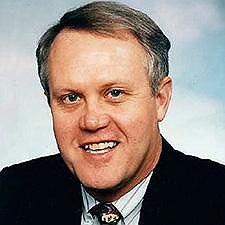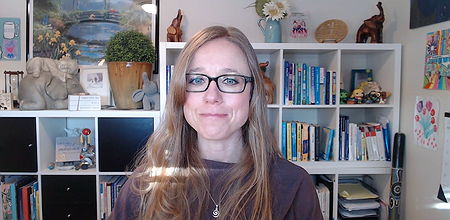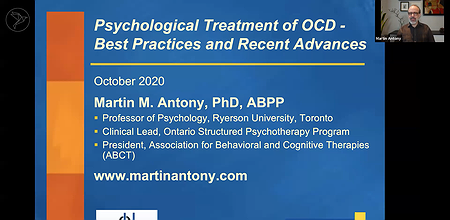A theoretical course illustrated with clinical examples. This course is composed of videos of 5 to 15 minutes each. The PowerPoint of the course to download.
DSM-5-TR: Unlocking its Potential for Your Clinical Practice
Dr. George B. Haarman, Psychologist
This worskhop will provide clinicians with a thorough review of the changes in coding, diagnostic criteria, differential diagnosis, and diagnostic features contained in the new DSM-5-TR.
Excerpt: definition of a mental disorder
- 4h of continuing education
- 21 lessons that last from 5 to 15 minutes each
- 1 certificate of achievement
- 1 PowerPoint
- 1 bibliography
- 1 course evaluation
- 4 months access - automatically extended until you complete the course
- 7-day money back guarantee
- 97% of participants who completed the satisfaction survey declare they would recommend this course to a colleague
Overview
The Diagnostic and Statistical Manual of Mental Disorders, Fifth Edition, Text Revision (DSM-5-TR), was released on March 22, 2022. It is being billed as the most comprehensive, current, and critical resource for clinical practice available to today's mental health clinicians and researchers. DSM-5-TR includes the fully revised text and references, updated diagnostic criteria and ICD-10-CM codes since DSM-5 was published in 2013. It features a new disorder, Prolonged Grief Disorder, as well as codes for suicidal behavior available to all clinicians of any discipline without the requirement of any other diagnosis.
In this workshop, Dr. Haarman will highlight the changes and revisions for each disorder with updated sections on associated features, prevalence, development and course, risk and prognostic factors, culture, diagnostic markers, suicide, differential diagnosis, and more. New diagnostic categories, including Suicidal Behavior Disorder, Nonsuicidal Self-Injury, and Prolonged Grief Disorder will be reviewed in detail. This workshop is intended for all mental health and substance abuse professionals who routinely assess, diagnose, and treat individuals with psychiatric or psychological disorders.
Unlike our other courses, this one is presented in audio only.
About the expert

Dr. Georges B. Haarman, Psy.D., LMFT, is a Licensed Clinical Psychologist and a Licensed Marriage and Family Therapist with more than 40 years of experience. A member of the American Psychological Association and Kentucky Psychological Association, Dr. Haarman is currently in private practice in Louisville, Kentucky (USA), and serves as a consultant to several school systems regarding the assessment of children. For 25 years, Dr. Haarman worked in the Department of Human Services (DHS) in Louisville, serving as the Deputy Director for the last 12 years of his tenure there. His prior experience with DHS included working with youth detention centers, juvenile group homes, child protective services, and juvenile probation. Dr. Haarman received his doctorate in clinical psychology from Spalding University and has been an instructor at Jefferson Community College, Bellarmine University, and Spalding University. Because of his years of experience in mental health, he has presented seminars nationally on psychopathology, depression, and emotional disorders in children and adolescents. He is also the author of School Refusal: Children Who Can’t or Won’t Go to School and Clinical Supervision: Legal, Ethical, and Risk Management Issues.
Learning objectives
- Participants will be able to identify changes between the DSM-5 and the DSM-5-TR
- Participants will be able to name new classifications that have been added to the DSM-5-TR
- Participants will be able to describe changes in the coding of specific disorders, including over 50 coding updates new to DSM-5-TR for substance intoxication and withdrawal and other disorders
- Participants will be able to name and integrate changes in diagnostic criteria between DSM-5 and DSM-5-TR
- Participants will be able to describe the diagnostic criteria for Suicidal Behavior Disorder, Non-Suicidal Self-Injury, and Prolonged Grief Disorder
Learning material
Syllabus
- PowerPoint
- 1. Presentation
-
Section I - Overview, Philosophy, Ethics, ans Culture, Race, and Social Determinants
- 2. History of the Diagnostic and Statistical Manual (DSM)
- 3. The philosophy of the DSM-5
- 4. Definition of a mental disorder
- 5. Features of the DSM-5 and ICD 11
- 6. The DSM-5-TR in relation to culture and race
- 7. Impacts of culture and race
- 8. Cultural considerations in the DSM-5-TR
- 9. Working ethically with the DSM-5-TR
-
Section II - Changes : DSM-IV-TR to DSM5 and DSM-5 to DSM-5-TR
- 10. Diagnostic differences between DSM-IV and DSM-5
- 11. Major changes between the DSM-5 and DSM-5-TR
- 12. Prolonged Grief DIsorder (PGD)
- 13. Suicidal Behavior Disorder (SBD)
- 14. Nonsuicidal Self-Injury Disorder
-
Section III - Criteria Changes to DSM-5-TR
- 15. Criteria changes for bipolar disorders
- 16. Criteria changes for depressive disorder
- 17. Other criteria changes and name changes
-
Section IV - Coding Changes and Case Studies
- 18. Coding changes within the DSM-5-TR
- 19. A case study
- 20. Summary
- 21. Conclusion
- Bibliography
CE Credits
Download a certificate of successful completion.
Audience
This training is intended for mental health professionals.
Your comments
"Excellent course"
A psychologist (Canada)
"yes it was verry Satisfied includes all imformation about dsm5 and i hope many formation and courses like hcr20 and mmpi rorchack" (automatically translated)
A student (Algeria)
Registration
Ask a question
Do you have a question? Then email us at contact@asadis.net
Frequently asked questions
-
How long do I have access to the course?
After your registration, the course is accessible anytime and from anywhere for 124 days. And if that’s not enough, we’ll automatically extend your access.
-
When does the course start?
That is entirely up to you! When you buy a course, you'll receive an access link that you can activate when you want.
-
Is there a student rate?
Yes there is! To learn more, email us at contact@asadis.net.
Legal notice
The courses offered by ASADIS are accredited by different professional organisations. In addition, ASADIS is approved by the Canadian Psychological Association to offer continuing education for psychologists. ASADIS maintains responsibility for the program.
The CPA’s approval of an individual, group, or organization as a CE Sponsor or Provider is restricted to the activities described in the approved application or annual report form. The CPA’s approval does not extend to any other CE activity the Sponsor or Provider might offer. In granting its approval, the CPA assumes no legal or financial obligations to Sponsors, Providers, or to those individuals who might participate in a Sponsor or Provider’s CE activities or programs. Further, responsibility for the content, provision, and delivery of any CE activity approved by the CPA remains that of the CE Sponsor or Provider. The CPA disclaims all legal liability associated with the content, provision, and delivery of the approved CE activity.





